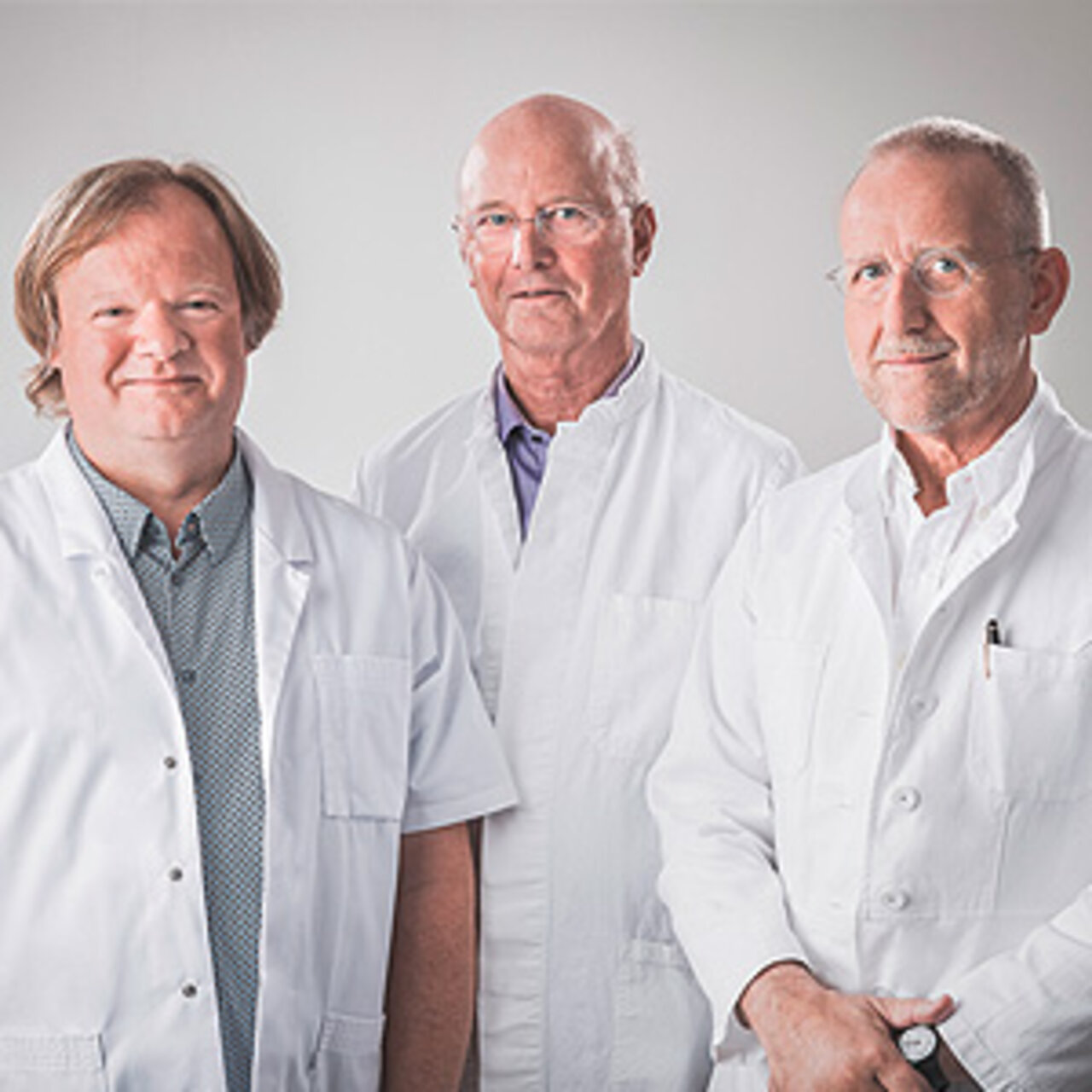Specialists in Liver cancer
19 Specialists found
Information About the Field of Liver cancer
 What is liver cancer?
What is liver cancer?
The “hepatocellular carcinoma” (HCC) is the most common form of a malignant liver tumor. This form of liver cancer affects among 6% of men and 3% women, among one of the more common tumor afflictions.
The liver is the central digestive organ in the human body. The function of this organ is essential for living.
Liver cancer symptoms
The signs of liver tumors are very unspecific. Most patients suffer from:
- Weakness
- Fatigue
- Weight loss
Late signs of the diseases include:
- Feeling of pressure in the stomach
- Protrusion of the abdominal wall
- Yellow discoloration of the skin (jaundice)
5% of tumors are first discovered late, through metastasized tumors (tumors that are dispersed in other organs).
How is liver cancer diagnosed?
The course of this disease is typically very progressive. The tumor diagnosis can be established with help of ultrasound, computed axial tomography scan (CAT) or with magnetic resonance imaging (MRI). With help of a fine needle biopsy (the removal of liver tissue through the mid-abdominal wall with a specialized needle), the diagnosis can be confirmed.
Which types of liver tumors are there?
In addition to hepatocellular carcinoma (HCC), the most common form of liver cancer, there are cholangiocarcinoma (gallbladder carcinoma), heptoblastoma, sarcoma or cystadenomacarcinoma, which are however rare.
Even more frequent than HCC (liver cell cancer) are liver metastases, which are remote tumor formations in the liver (malignant secondary liver tumors). These can, for example, be metastases from colorectal cancer or mastocarcinoma (breast cancer). Since the liver, as the main digestive organ in the body, is heavily bled-through, it is also the organ in which tumors most frequently occur.
Benign liver tumors are for example liver cell adenoma, focal-nodular hyperplasia (FNH), cavernous hemangioma or liver cysts.
How is liver carcinoma treated?
The best way to survive a malignant liver tumor is through the complete, surgical removal (resection) of the formation. If there is additionally existing, serious liver cirrhosis, a liver transplant may be considered.
The extension of life with palliative measures (measures, which won’t cure, but provide relief and perhaps life extension) is conditionally possible. However, the quality of life can be significantly improved through measures such as alcohol instillation in the tumor, chemotherapy, or the improvement of bile duct outlet.
Measures to reduce the size of a tumor
If a tumor cannot be surgically removed, alcohol can be injected into the tumor or the tumor can be reduced with heat (for example, through RFA, radiofrequency ablation). A tumor which was previously inoperable, can be reduced to an operable state.
In cases of advanced states of the disease, the tumor can be reduced with selective internal radiotherapy (SIRT, radioembolization). With this process, a radioactive material passes directly through the tumor. Through this method the tumor size is reduced and the surrounding tissue is protected as best possible.
A further possibility to reduce the size of the tumor is with the use of transarterial chemoembolization (TACE). Here, using an intravenous catheter, which is placed at the tumor, injects a chemotherapeutic treatment directly into the cancer tissue. This tumor-reducing measure can serve as a bridge until liver transplantation, resection, or palliative intervention.
What are the chances of recovery for liver cancer?
In total, the chances of recovery by hepatocellular carcinoma are poor. Patients with cirrhosis of the liver should be screened semi-annually with ultrasound and lab tests (tumor markers AFP = alpha-fetoprotein).
What is the life expectancy with liver cancer?
If left untreated, the average survival time following the diagnosis of liver cancer (HCC) is approximately 4 months. Following surgical resection, patients survive an average of 3 years; respectively 20-50% of the patients are cured after the partial liver resection (removal of the entire tumor tissue).
Sources:
Innere Medizin, Gerd Herold und Mitarbeiter, 2014
Chirurgie, Siewert/Stein, 9. Auflage, Springer Verlag

















